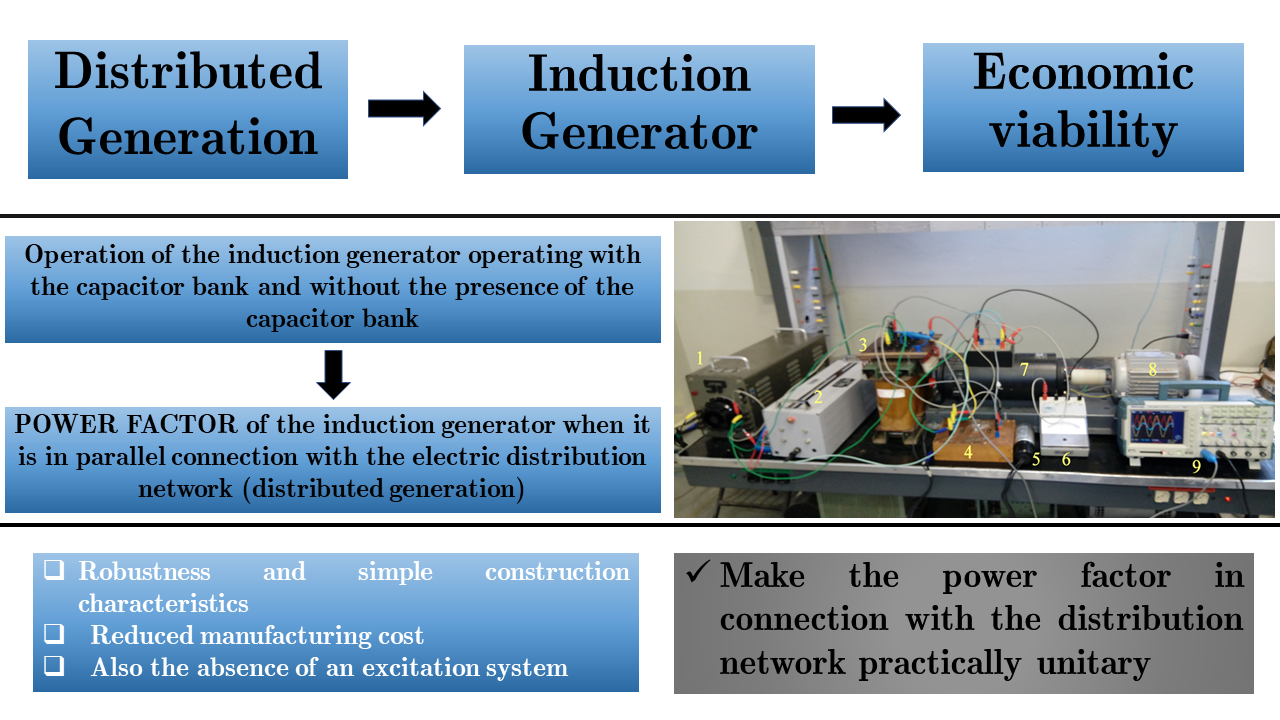Theoretical-Experimental Analysis of the Induction Generator in the Use of Distributed Generation
Keywords:
Capacitor bank, Distribution Networks, induction generator, power factor, magnetizing reactanceAbstract
This work presents a theoretical-experimental study in permanent regime of the three-phase induction generator of squirrel cage connected directly to the distribution network at fixed speed. The study is based on the operation of the induction generator that operates with the capacitor bank and without the presence of the capacitor bank to show the improvement of the power factor of the induction generator when in connection with the electric distribution network.
Downloads


